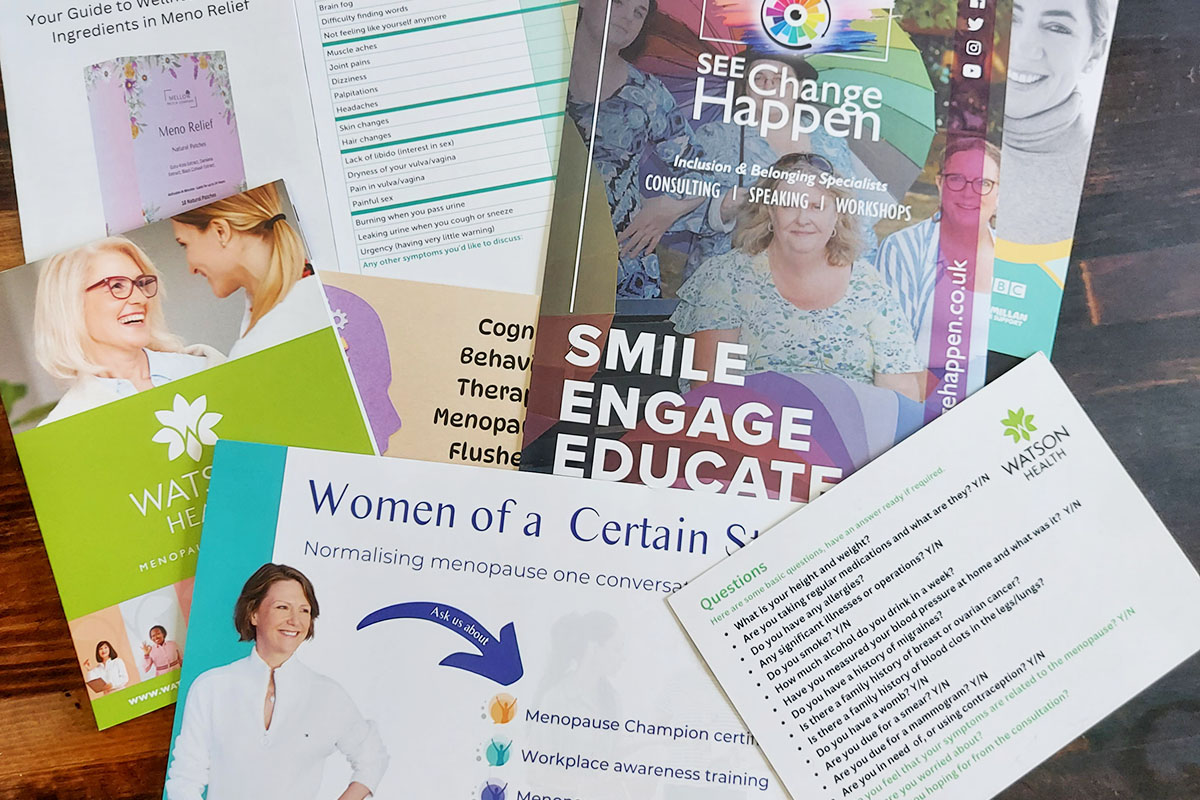‘Menopause discrimination stands as a pressing concern in the workplace, impacting an increasingly significant portion of the workforce. Despite being covered under the Equality Act, numerous organisations and authoritative bodies lack explicit guidance or policies to provide practical support for individuals navigating menopause. Recent findings from an Acas survey reveal that one-third of employers feel ill-equipped to provide adequate support for women experiencing menopause.’ Institute of Government & Public Policy
 On Thursday 18 April, I spent the day at the Institute of Government & Public Policy (IGPP) ‘Advancing Menopause in the Workplace’ Conference in London, listening to industry experts, politicians, doctors and keynote speakers delivering the most current advice and guidance on how to develop menopause support in the workplace.
On Thursday 18 April, I spent the day at the Institute of Government & Public Policy (IGPP) ‘Advancing Menopause in the Workplace’ Conference in London, listening to industry experts, politicians, doctors and keynote speakers delivering the most current advice and guidance on how to develop menopause support in the workplace.
The advice was not only about the menopause, but the overarching hormonal experience of anyone who might be experiencing hormonal challenges. This could be someone who is struggling with menstruation, going through early menopause or someone experiencing post-menopausal symptoms. It could also be someone who may be transgender going through hormone changes either due to medication or hormone therapy.
The point is that we are having the conversation in the workplace and protecting individuals’ experiences with support and guidance.
‘Recognising the need to address this issue, the British Standards Institution (BSI) has introduced a workplace standard aimed at dismantling taboos and helping employers retain valuable talent. The standard recommends additional training for managers and the implementation of flexible work patterns. This progressive guidance is intended to support women experiencing periods of menopause, representing a significant step forward in the field.‘ IGPP
Some job roles have more autonomy that others with regards to what support and flexibility is possible. For example, care workers, nurses, chefs, shop workers and assembly workers are all jobs where flexible working hours may not be possible. For these groups we can look at uniform fabric, providing sanitary products and sign-posting to information. In other jobs, where more autonomy is possible, flexible working hours could be considered.
Bringing men into the conversation to share their experiences about loved ones – sisters, partners, mothers, friends – can add a valuable level of inclusion to the table. By including men in storytelling, we can further normalise hormone experiences and acknowledge that they are a part of life and do need to be considered in an inclusive work place.
‘Furthermore, an article published by TUC addressed the workplace impact of menopause, emphasising that it has traditionally been treated as a private matter, but it is a workplace matter. A survey conducted by TUC found that women often felt unsupported by managers lacking training on menopause-related issues.’ IGPP
The day left me feeling more confident and empowered in advising Nellsar on how we can navigate the next steps of our Menopause Strategy. I have a list of ideas and small steps to add to our agenda. We have made the ‘Wellbeing of Women Pledge‘ which we will continue to work towards and move forward.
Learning outcomes from the Conference:
- Recognise the importance of creating an inclusive and supportive work environment.
- Explore the impact of menopause on productivity, inclusion, and workplace stability.
- Gain practical strategies and tools for supporting menopausal employees.
- Learn about accommodations, flexible work arrangements, and well-being initiatives.
- Learn techniques for fostering open dialogue and showing empathy.
- Understand the importance of providing necessary support for a positive work environment.
- Understand legal obligations related to menopause in the workplace.
- Explore equality considerations for menopausal individuals.
- Understand how nutrition impacts emotional well-being and bone health during menopause.
- Discuss practical approaches for supporting non-binary, trans, and gender non-conforming individuals.
- Discuss the need for cultural sensitivity in addressing menopausal challenges.
- Emphasise the role of employers in promoting understanding and awareness.
- Provide insights into best practices for creating menopause-friendly workplace policies.
Leni Wood, Head of Nutrition and Wellness




